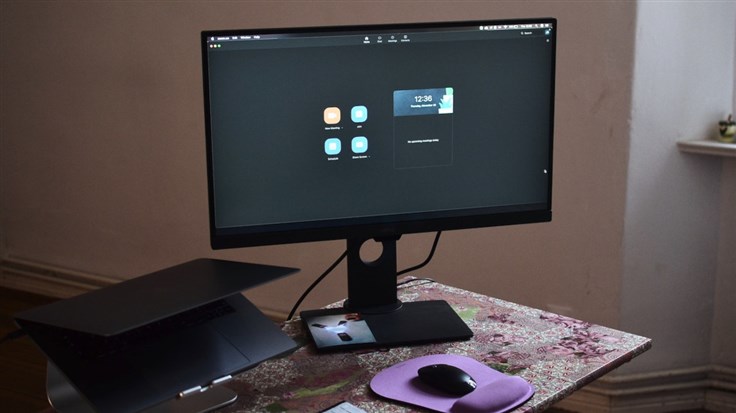Pwn2own Dutch Zoom Zoomarntz Malwarebyteslabs is a prestigious hacking competition that takes place annually, challenging some of the world’s top cybersecurity experts to find and exploit vulnerabilities in popular software. At Pwn2Own 2021, two Dutch teams, Dutch Zoom, and Zoomarntz participated in the competition and discovered critical vulnerabilities in Zoom, the popular video conferencing software. In this article, we will examine the vulnerabilities discovered by Dutch Zoom and Zoomarntz at Pwn2Own 2021 and their implications for Zoom’s security.
Introduction
Pwn2Own and Dutch Zoom and Zoomarntz Pwn2Own is an annual competition organized by the Zero Day Initiative (ZDI), a program run by Trend Micro that rewards security researchers for finding and reporting software vulnerabilities. The competition challenges researchers to find vulnerabilities in popular software, including web browsers, operating systems, and virtualization software. The goal of Pwn2Own is to incentivize security researchers to find vulnerabilities before malicious actors can exploit them.
Dutch Zoom and Zoomarntz are two teams of security researchers from the Netherlands that participated in Pwn2Own 2021. The two teams discovered critical vulnerabilities in Zoom, a popular video conferencing software that saw a surge in users during the COVID-19 pandemic. The vulnerabilities discovered by Dutch Zoom and Zoomarntz were reported to Zoom and have since been patched.
Pwn2Own 2021
Pwn2own Dutch Zoom Zoomarntz Malwarebyteslabs Discover Critical Vulnerabilities in Zoom At Pwn2Own 2021, Dutch Zoom and Zoomarntz participated in the competition’s web category, which included popular web browsers and video conferencing software. Dutch Zoom and Zoomarntz chose to focus on Zoom and discovered three critical vulnerabilities in the software.
The first vulnerability discovered by Dutch Zoom and Zoomarntz was a remote code execution vulnerability in Zoom’s desktop client. The vulnerability allowed an attacker to execute arbitrary code on a victim’s computer by sending a specially crafted message to the victim’s Zoom client. The vulnerability was particularly dangerous because it did not require any user interaction to exploit.
The second vulnerability discovered by Dutch Zoom and Zoomarntz was a vulnerability in Zoom’s macOS installer. The vulnerability allowed an attacker to execute arbitrary code with root privileges on a victim’s computer by tricking the victim into downloading a malicious installer. The vulnerability was particularly dangerous because it allowed an attacker to gain complete control over a victim’s computer.
The third vulnerability discovered by Dutch Zoom and Zoomarntz was a vulnerability in Zoom’s Windows installer. The vulnerability allowed an attacker to execute arbitrary code with elevated privileges on a victim’s computer by tricking the victim into downloading a malicious installer. The vulnerability was particularly dangerous because it allowed an attacker to gain complete control over a victim’s computer.
Malwarebytes Labs Analysis: Technical Details of the Vulnerabilities Following the discovery of the vulnerabilities by Dutch Zoom and Zoomarntz, the vulnerabilities were reported to Zoom, which subsequently patched them. Malwarebytes Labs, a cybersecurity company, analyzed the vulnerabilities to determine their technical details and how they were exploited.
According to Malwarebytes Labs, the first vulnerability discovered by Dutch Zoom and Zoomarntz was caused by a lack of input validation in the Zoom client’s message-handling functionality. An attacker could exploit the vulnerability by sending a specially crafted message to a victim’s Zoom client, which would trigger the execution of arbitrary code on the victim’s computer.
The second and third vulnerabilities discovered by Dutch Zoom and Zoomarntz were caused by the use of vulnerable third-party installers in Zoom’s macOS and Windows clients. Third-party installers, which were used to install Zoom.
FAQS
Q: What is Pwn2Own?
A: Pwn2Own is an annual hacking competition organized by the Zero Day Initiative (ZDI), challenging security researchers to find and exploit vulnerabilities in popular software.
Q: Who are Dutch Zoom and Zoomarntz?
A: Dutch Zoom and Zoomarntz are two teams of security researchers from the Netherlands that participated in Pwn2Own 2021 and discovered critical vulnerabilities in Zoom.
Q: What vulnerabilities did Dutch Zoom and Zoomarntz discover in Zoom at Pwn2Own 2021?
A: Dutch Zoom and Zoomarntz discovered three critical vulnerabilities in Zoom at Pwn2Own 2021: a remote code execution vulnerability in Zoom’s desktop client, a vulnerability in Zoom’s macOS installer, and a vulnerability in Zoom’s Windows installer.
Q: How were the vulnerabilities discovered by Dutch Zoom and Zoomarntz exploited?
A: The remote code execution vulnerability in Zoom’s desktop client could be exploited by sending a specially crafted message to a victim’s Zoom client. The vulnerabilities in Zoom’s macOS and Windows installers could be exploited by tricking a victim into downloading a malicious installer.
Q: What was the impact of the vulnerabilities discovered by Dutch Zoom and Zoomarntz on Zoom’s security?
A: The vulnerabilities discovered by Dutch Zoom and Zoomarntz were critical and could have allowed an attacker to gain complete control over a victim’s computer.
Q: What was Zoom’s response to the vulnerabilities discovered by Dutch Zoom and Zoomarntz?
A: Zoom was notified of the vulnerabilities and subsequently patched them.
Q: What was Malwarebytes Labs’ analysis of the vulnerabilities discovered by Dutch Zoom and Zoomarntz?
A: Malwarebytes Labs analyzed the vulnerabilities and determined their technical details, including how they were exploited. Their analysis revealed that the vulnerabilities were caused by a lack of input validation in the Zoom client’s message handling functionality and the use of vulnerable third-party installers in Zoom’s macOS and Windows clients.
Q: What are the implications of the vulnerabilities discovered by Dutch Zoom and Zoomarntz for software security?
A: The vulnerabilities discovered by Dutch Zoom and Zoomarntz highlight the importance of regular vulnerability testing and the need for software companies to promptly address and patch vulnerabilities in their products. Failure to do so can leave users vulnerable to attack by malicious actors.






